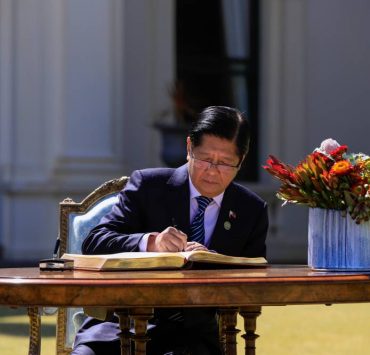Empathy for pedestrians, compassion for society
Anyone who has traveled to any first world country will not fail to notice it, get impressed by it, and feel deeply envious because of it. In these developed countries, pedestrians are treated like royalty because cars completely stop to give right of way to any person crossing the street. In contrast, only high ranking public officials on board vehicles with screaming and flashing sirens, are given the same kind of preferential privilege on the road, in third world countries like ours.
This road ethics is deeply ingrained in first world countries because it is faithfully observed even in the absence of signs, making it mandatory. It’s a rule unwritten in road signs, but followed reverentially by motorists. It’s a road culture strongly imbedded in the minds of motorists, so much so that—even if a tourist pedestrian unfamiliar with the rule stops at the curve to let cars pass first—vehicles will voluntary stop and goad the pedestrian to go ahead and cross first. And many pedestrians in those countries are so self-assured that incoming vehicles will instantaneously stop to let them pass first because many of them cross-designated pedestrian crossings even without looking out for incoming vehicles.
Decades ago, the degenerative culture of motorists who think they’re sovereigns on the road, was overwhelmingly prevalent in our third world country. Pedestrians always had to give way to vehicles, because roads are meant for vehicles, so the thinking then went. In recent years, however, there’s been a growing number of motorists who stop to let pedestrians cross the road first, even in the absence of road signs mandating such a rule. However, pedestrians still have to wait for incoming motorists to stop before they proceed to cross, because they know that many motorists are still infested with the wrong attitude that pedestrians must at all times be deferential to vehicle riders. In other words, road courtesy for pedestrians is still viewed as a concession bequeathed by motorists, and not a preferential right enjoyed by walking individuals.
Still, the incipient culture of road courtesy for pedestrians is a refreshing development that holds a lot of promise in helping stop our people’s fast disappearing sense of empathy for others. For a multitude of reasons, there has been a huge erosion in our sense of compassion for fellow community members and for community interest in general. We have blindly subscribed to the frame of mind that all society members are participants in a rat race. Consequently, we’ve come to widely accept that, to be imbued with a dog-eats-dog mentality, is fair and square. We have taken on an acute adherence to a mangled capitalist mindset of advocating even the most mundane of our personal interests at the expense of trampling upon the more vital needs of others or the more significant interest of our community.
The lack of road empathy for pedestrians is only the tip of the iceberg. There’s a continuously mounting collection of ill-traits that share the common denominator of causing the fast disappearance of our sense of compassion for others. We need to stop this worsening indifference to the welfare of others.
A civil society campaign to accord respect for our pedestrians may yet provide the spark that will make us regain the vital trait of empathy. A growing number of motorists who practice courtesy for pedestrians, will make others emulate and will shame defiant ones. Government regulations that will impose penalties and road signs that warn of hefty fines, will help the campaign to eventually evolve into a road culture.
It may seem innocuous on the surface, but it may hold huge potentials in turning around our fast degrading sense of compassion for others. And once compassion for pedestrians becomes instilled in the minds of our motorists, it will become easier to expand the campaign into other worthwhile crusades: sidewalks cleared of obstructions; elevated and covered walkways for longer distances; trees to provide shades along our streets; pocket parks; safe bicycle lanes; migrated power and communication lines in underground holes; among many others.
Our country’s pedestrians and private vehicle riders represent the great divide between the rich and poor in our society. There has been growing animosity between these two economic classes in our country because the poor have largely not felt demonstrations of compassion from their more fortunate countrymen. It’s about time that our privileged few show empathy for our less-privileged brethren. Giving respect and according deference to our humble pedestrians may yet open the floodgates for compassion and kindheartedness to flow and flourish in our society.
Comments to fleamarketofideas@gmail.com


















